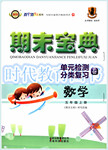题目内容
Stephen Hawking believes that the earth is unlikely to be the only planet _______ life has developed gradually.
A.that B.where C.which D.whose
B
【解析】
试题分析:考查定语从句:先行词是the only planet,定语从句缺少地点状语,用where引导定语从句,句意:Stephen Hawking认为地球不可能是生命逐渐发展的唯一星球。选B.
考点:考查定语从句
点评:定语从句的考查主要就是考查关系词的辨析,关系代词that, which, whose, whom, as, who在句中做主语,宾语,表语或者定语;where, why, when在句中做状语。要分析句子成分,看缺少什么成分,就选用相应的关系词。

 期末宝典单元检测分类复习卷系列答案
期末宝典单元检测分类复习卷系列答案Children find meanings in their old family tales.
When Stephen Guyer’s three children were growing up, he told them stories about how his grandfather, a banker, 21 all in the 1930s, but did not lose sight of what he valued most. In one of the darkest times 22 his strong-minded grandfather was nearly 23 , he loaded his family into the car and 24 them to see family members in Canada with a 25 ,“there are more important things in life than money. ”
The 26 took on a new meaning recently when Mr. Guyer downsized to a 27 house from a more expensive and comfortable one. He was 28 that his children, a daughter, 15, and twins, 22, would be upset. To his surprise, they weren’t. 29 , their reaction echoed (共鸣) their great-grandfather’s. What they 30 was how warm the people were in the house and how 31 of their heart was accessible.
Many parents are finding family stories have surprising power to help children 32 hard times. Storytelling experts say the phenomenon reflects a growing 33 in telling tales, evidenced by a rise in a storytelling events and festivals.
A university 34 of 65 families with children aged from 14 to 16 found kids’ ability to 35 parents’ stories was linked to a lower rate of anger and anxiety. The 36 is telling the stories in a way children can 37 . We’re not talking here about the kind of story that 38 , “When I was a kid, I walked to school every day uphill both ways, barefoot in the snow. ” Instead, we should choose a story suited to the child’s 39 , and make eye contact (接触) to create “a personal experience”,. We don’t have to tell children 40 they should take from the story and what the moral is. ”
1..
|
A.missed |
B.lost |
C.forgot |
D.ignored |
|
2. |
|
|
3. |
|
4. A fetched B. allowed C. expected D. took
|
5. |
|
|
6. |
|
|
7. |
|
|
8. |
|
|
9. |
|
10..
|
A.talked about |
B.cared about |
C.wrote about |
D.heard about |
|
11. |
|
|
12. |
|
|
13. |
|
|
14. |
|
|
15. |
|
|
16. |
|
|
17. |
|
|
18. |
|
|
19. |
|
|
20. |
|